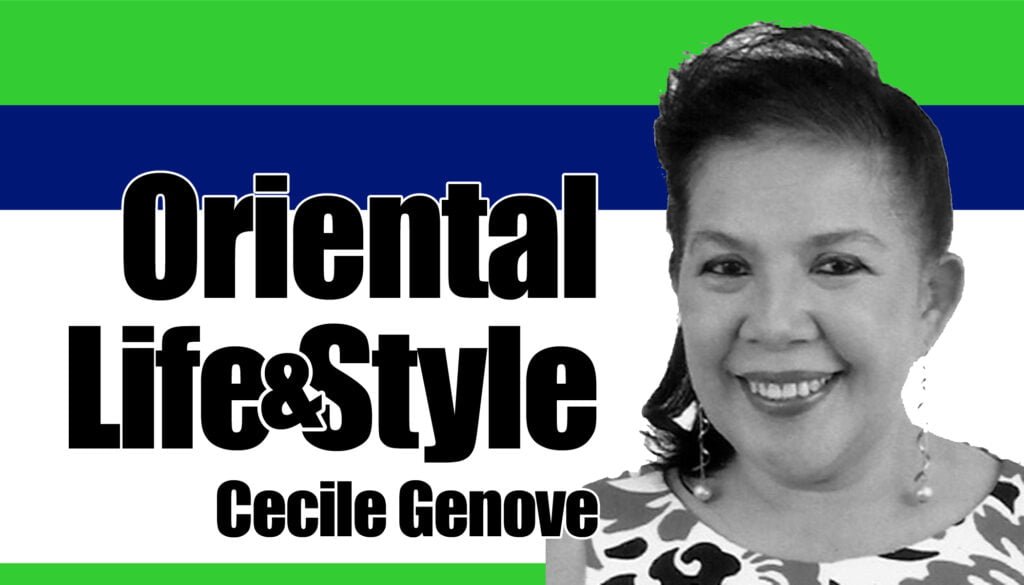
With the recent spate of events in the country, specifically those that have transpired in imperial Manila, some are wary that the political upheavals involving the two topmost officials of the land may escalate into something more serious. Is history going to repeat itself? Will there be a People Power 3 in the offing?
These are apprehensions that people should not disregard or brush aside, much less belittle. One of the protagonists may just spring a surprise or stage an unexpected twist. But, these events bring to mind what former President Fidel V. Ramos as chairman of the Ramos Peace and Development Foundation, said when he visited Dumaguete City some time ago, that opened new ideas and insights as to the establishment of what he termed as a “new regional order or Pax Asia-Pacifica.”
Speaking passionately about how Filipinos should not take for granted our freedom, Ramos said that this primarily is our first duty to our country – “to defend our country against any tyrant who comes around.” Furthermore, our second duty, he said, is “to plan and act as one national team in order to fight poverty and corruption, advance our economy, reinforce our democratic institutions, and insure our enduring peace and sustainable development, including and especially in Mindanao, eastern Visayas, and poorer regions.”
He likewise made a reference to our heroes on whose shoulders Filipinos stand on, thus, making Filipinos taller than other peoples. He said the poverty, injustice, and non-representation of common Filipinos like Andres Bonifacio and his followers at Pugad Lawin continue to be felt among the masses today. “Their basic needs for food, health, income, livelihood, jobs, shelter, education, security, and the like still constitute our people’s primary problems today, 116 years after Aguinaldo’s Declaration of Independence at Kawit, Cavite.
Is the state of the country then and now the same? According to Ramos, “given the inequality of the economy, expanding population growth, rising inflation and costs of basic needs, and plummeting trust ratings for officials, among other negatives, our people now clamor more intensely for positive actions leading to their uplift and well-being.” Are these any different from what we experience today?
He referred to the 21st century distribution of power as changing because the balance of power is tilting away from the Atlantic, where it has been for the last two centuries because other power centers are rising in relative strength, not only in Asia, but also in Latin America and Africa as well.
Consider these facts that Ramos mentioned. “By 2025, Asia is projected to be home to three of the five largest economies and by 2050, it could generate 52 percent of global gross domestic product from about 20-25 percent in 2010. By then, China, India, and Japan will be competing with the United States and the European Union for the top places. The United States still wields the strongest influence on global affairs, whether militarily, economically, or culturally. But even America can hardly act unilaterally any longer.
“China has been growing much faster than the world has thought possible. After surpassing Germany as the largest exporter in October 2009, China overtook Japan to become the second largest economy in mid-2010. It is China’s 1.3 billion people that keep China up there, alongside the 300 million Americans. In individual income terms, China still is a poor nation. Americans are at least eight times richer than their Chinese counterparts.
“India, like China a population billionaire, has its own global ambitions. By 2020, it aspires to be the third largest economy, overtaking Japan. Already India is a force in information/communications technology, business process outsourcing, and heavy industry. But, it’s still years behind China in terms of State efficiency and economic weight.
“By contrast, Japan’s economic model of “Japan Inc.” of the past three decades – consisting of top politicians, big business, and a powerful bureaucracy working hand in hand – did not maintain its economic lead in our home region. However, its present leadership has shown the political will to break up monopolies, cartels, and special interests; and has faced up to China with new determination.”
In the next 10-15 years, Ramos said that the challenge is to replace the American peace or Pax Americana that has “enforced stability in our Asia-Pacific region since World War II” with a Pax Asia-Pacifica as a “cooperative undertaking by all nations – big and small – in the Asia-Pacific, according to our best efforts.
He said that in his view, “our basic task must be to organize a concert of nations to manage military rivalries, and avoid arms build-ups in the Asia-Pacific region through deepened bonds of caring, sharing, and daring for each other.” However, he said that such an Asia-Pacific peace will endure only if it is based on the balance of mutual benefit rather than on the balance of power.
Ramos called this concept as “burden-sharing” which should compel all Asia-Pacific countries to exert their best efforts to ensure the region’s harmony and security. The name of the game is competition and cooperation, or their interplay.
“The real strategic challenge, however, will be for all our countries to ensure and maintain that the spirit of cooperation to prosper is always stronger than the competitive impulse to dominate,” concluded Ramos. | NWI




